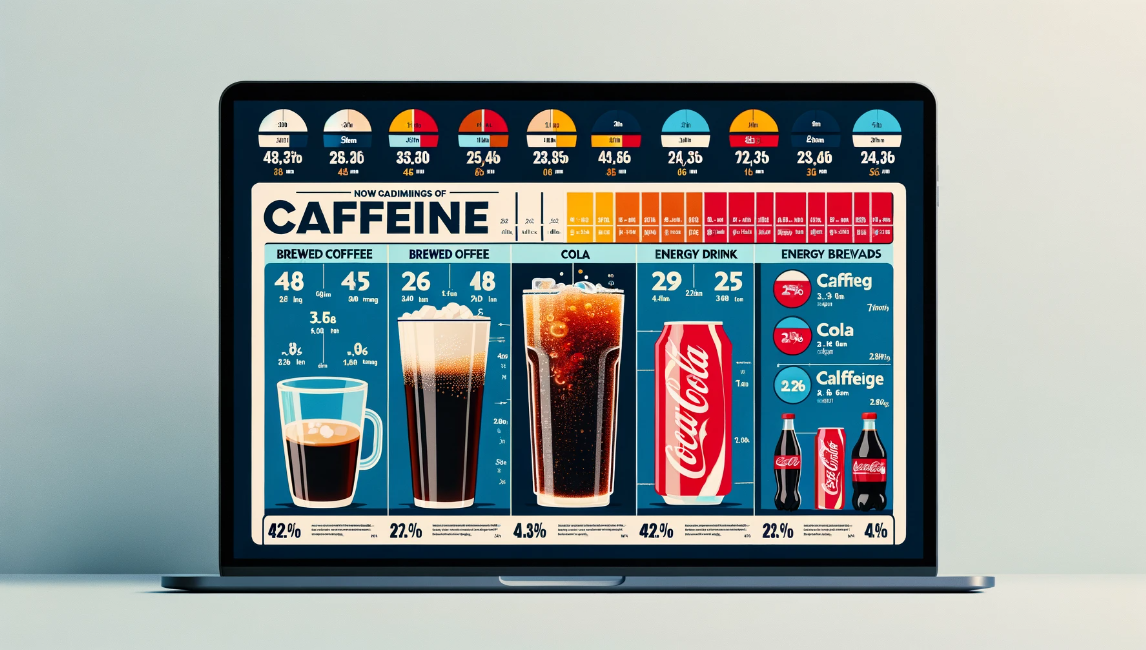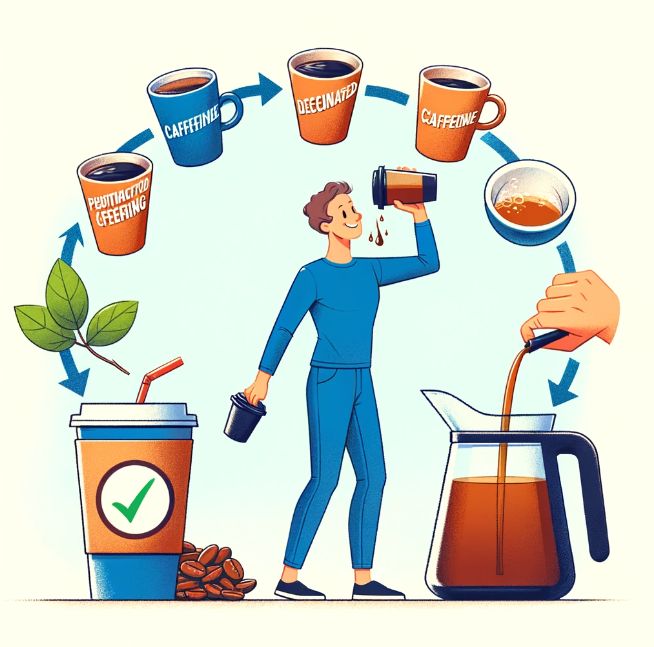How Much Caffeine is Too Much?
Others are reading now
Caffeine, a central nervous system stimulant, is a popular component in many beverages and foods, most notably coffee, tea, cola, and energy drinks. Its ability to ward off drowsiness and improve concentration makes it a daily staple for many.
However, there’s a fine line between a beneficial amount and excessive consumption, which can lead to adverse effects.
Safe Limits of Caffeine
For healthy adults, the safe upper limit of caffeine consumption is approximately 400 milligrams (mg) per day. This amount is equivalent to about four cups of brewed coffee, 10 cans of cola, or two energy shot drinks.
It’s essential to consider that the actual caffeine content can vary significantly, especially in energy drinks.
Also read
Risks of High Caffeine Intake
Consuming caffeine in powder or liquid form can lead to toxic levels. For instance, just one teaspoon of powdered caffeine is comparable to about 28 cups of coffee. Such excessive intake can cause serious health problems and even death.
Overconsumption of caffeine may lead to a range of symptoms, including headache, insomnia, nervousness, irritability, frequent urination, fast heartbeat, and muscle tremors.
Individual sensitivity to caffeine varies. Those who are more sensitive might experience adverse effects even with small amounts, such as restlessness and sleep problems. This sensitivity can be influenced by how much caffeine a person is used to drinking.
Non-regular consumers of caffeine are typically more sensitive to its effects.

Impact on Sleep
Caffeine, even when consumed in the afternoon, can interfere with sleep. It can lead to a vicious cycle where caffeine is used to mask sleep deprivation, exacerbating the problem by preventing restful sleep at night.
To ensure a good night’s sleep, it’s recommended to avoid caffeine at least 6-8 hours before bedtime. This guideline is based on caffeine’s half-life and its disruptive effects on sleep. Sensitivity to caffeine varies among individuals, so some might need to extend this time up to 9 hours, especially if they are more sensitive to caffeine’s effects.

Interactions with Medications
Caffeine can interact with certain medications and herbal supplements, potentially increasing the risk of adverse effects. For example, mixing caffeine with ephedrine, found in some decongestants, could raise the risk of high blood pressure, heart attacks, strokes, or seizures.
Similarly, combining it with theophylline, a medication for bronchial issues, might amplify the effects of caffeine, leading to nausea and heart palpitations. Echinacea, often used for preventing infections, can increase caffeine’s concentration in the blood, heightening its unpleasant effects.
Special Considerations
Pregnant women or those trying to become pregnant, and breastfeeding mothers, should consult their doctors regarding caffeine consumption. Typically, they are advised to limit their intake to less than 200 mg daily. Adolescents and young adults should also be cautious about excessive caffeine intake and avoid mixing it with alcohol and other drugs.
Managing Caffeine Consumption
Reducing caffeine intake can be challenging and may lead to withdrawal symptoms like headaches, fatigue, irritability, and difficulty focusing. These symptoms are usually mild and improve after a few days.
Strategies to manage caffeine consumption include keeping track of intake, cutting back gradually, opting for decaffeinated beverages, brewing tea for shorter durations, or choosing herbal teas without caffeine. It’s also advisable to check over-the-counter pain relievers for caffeine content and opt for caffeine-free alternatives if needed.
In conclusion, while caffeine is a useful stimulant for many, understanding and respecting its limits is crucial for maintaining good health. Moderation and mindfulness about consumption can help avoid the pitfalls of excessive intake and ensure that caffeine remains a beneficial part of your daily routine.


